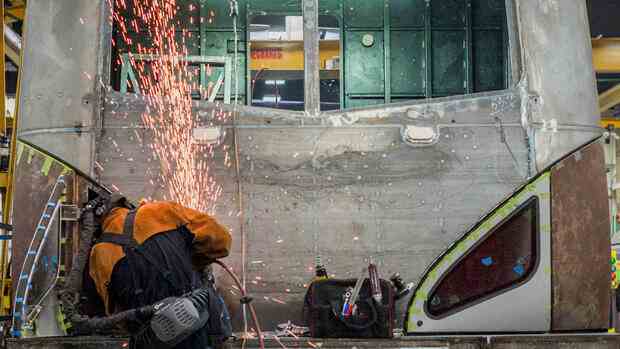The Mobility division intends to significantly expand production in the USA.
(Photo: Bloomberg/Getty Images)
Munich During the corona lockdowns, retailers were unable to meet the demand for sportswear because factories in southern Vietnam were at a standstill. When they started running again, car manufacturers had to stop their assembly lines because a supplier in the Ukraine had stopped manufacturing cable harnesses. The companies are now examining internally what consequences a failure of deliveries from China could have.
The lesson from this: The companies must balance their production structure even better and, if possible, have a production presence in each of the major economic areas. Resilience is not only required in the supply chains, but also in our own production.
This can sometimes make production smaller and more expensive. But the costs are even higher in the event of a total failure if the concentration is too high. That’s why the China euphoria is not only dampened at Siemens. The group is currently focusing more strongly on the USA.
The times when goods were exported all over the world from a cheap country are long gone in most sectors. Production followed the sales markets more closely. The most recent crises have shown how vulnerable the supply networks still are.
Each of the major economic areas has its risks. War is raging in Europe and energy costs are high. While everyone has good reason to want to take China’s growth with them, tensions with the US are threatening to escalate and, in the worst case, an attack on Taiwan.
The “Inflation Reduction Act” promises growth in the USA
The USA seems all the more attractive. A lot of production is currently being set up there, and the “Inflation Reduction Act” promises great impetus. It is therefore only logical for Siemens to expand US production. Lucrative major orders beckon in the train division, and there is a backlog in automation technology.
Other companies will follow suit – without shutting down business in China because of it. Because the US euphoria shouldn’t get too big either. Nobody knows what will happen there after the next presidential elections.
For Germany as a business location, all of this means that there is little threat of deindustrialization across the board. A strong presence in Europe is necessary to balance group-wide production. When choosing a location, factors such as stability, employee qualifications and the supplier network also play an important role. If corporations like Siemens set up further production elsewhere in the world, this does not automatically mean relocation, but diversification.
More: Prior to the spin-off, Siemens gives employees location and job guarantees
